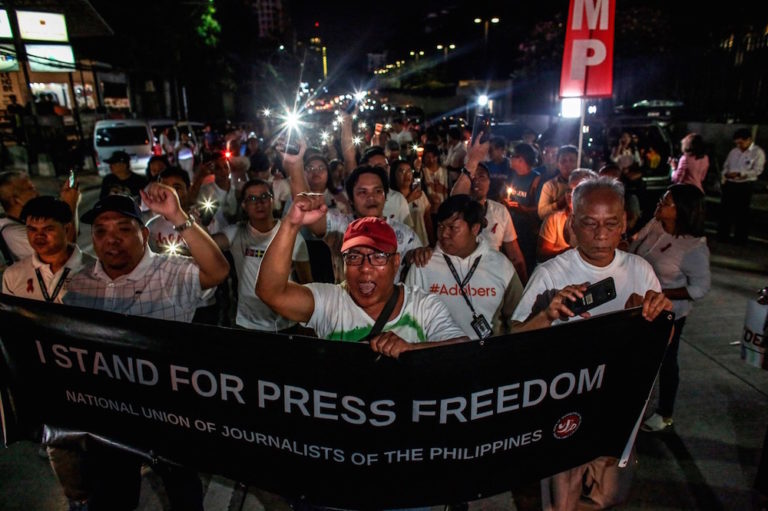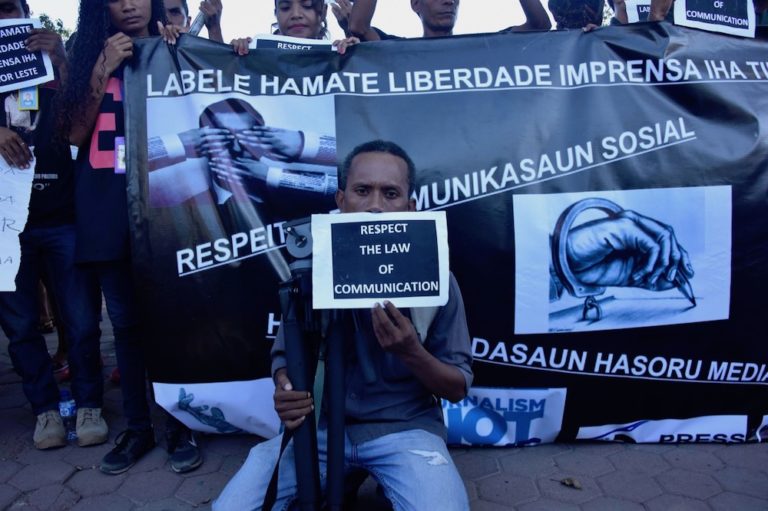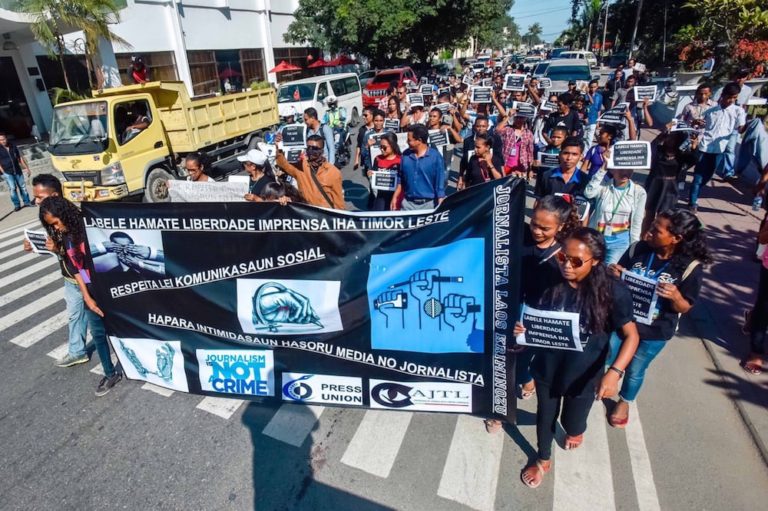(IFJ/IFEX) – The following is a 19 December 2006 IFJ press release: “Time for justice” 30 years after deaths of Balibo five journalists in East Timor The International Federation of Journalists (IFJ) supports calls from Australian affiliate, the Media, Entertainment & Arts Alliance (the Alliance), for full cooperation in an upcoming coroner’s inquest into the […]
(IFJ/IFEX) – The following is a 19 December 2006 IFJ press release:
“Time for justice” 30 years after deaths of Balibo five journalists in East Timor
The International Federation of Journalists (IFJ) supports calls from Australian affiliate, the Media, Entertainment & Arts Alliance (the Alliance), for full cooperation in an upcoming coroner’s inquest into the deaths of five journalists, dubbed the Balibo five, who were killed in 1975 in the East Timorese town of Balibo while covering the Indonesian invasion.
According to recent Australian newspaper reports, previously suppressed testimony will be heard in February 2007 at the three week inquiry in Sydney, which supports claims the journalists were executed upon the orders of the Indonesian military, contradicting the official line they were killed in crossfire.
“More than 30 years after the tragic deaths of our colleagues, it is time for justice to be achieved and for long-standing questions to finally be answered,” IFJ General Secretary Aidan White said.
“We strongly support the Alliance’s calls for an open and transparent inquest which allows the admission of all available evidence, and we call on the Australian government not to impede this process,” White said.
The journalists killed on October 16, 1975, were reporter Greg Shackleton, sound recordist Tony Stewart and cameraman Gary Cunningham of Channel Seven in Melbourne and reporter Malcolm Rennie and cameraman Brian Peters from Channel Nine in Sydney.
According to the Alliance, the inquest will hear new evidence from two former Australian government lawyers who say they were shown the text of an Indonesian military signal, intercepted by the Australian Defence Signals Directorate, that suggests the killings were ordered by generals in Jakarta.
However, the Alliance reports Australian Attorney-General Philip Ruddock has indicated the government may not release classified intelligence material relating to the case.
“This inquiry must not become another farce in the quest to have the truth told – after more than three decades of cover-ups and the suppression of key details, this is a vital opportunity to bring the perpetrators of these heinous crimes to justice,” the IFJ general secretary said.
“Far too long have we waited for the truth, and the IFJ calls on all parties to provide any relevant information which may assist in delivering an answer to the families and colleagues of the Balibo five, and allow this case to rest once and for all,” White said.
The IFJ represents over 500,000 journalists in more than 115 countries.


